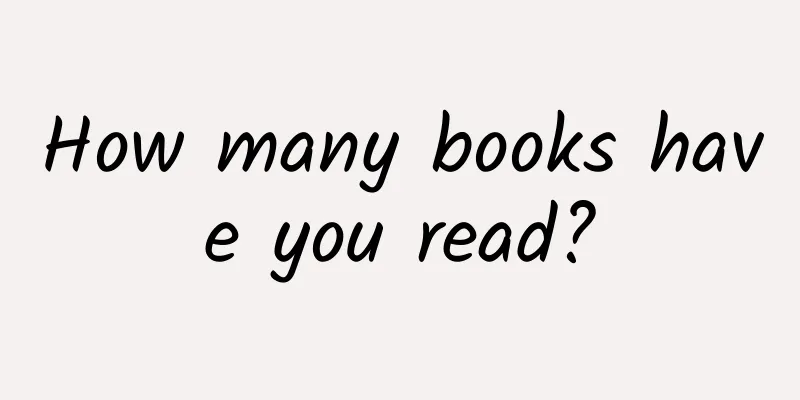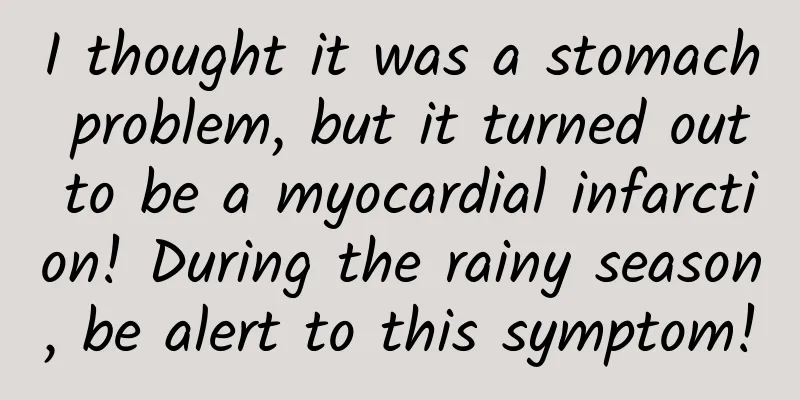How many books have you read?

|
© Book Riot Leviathan Press: In 2006, a study on the effects of Shakespeare's works on the human brain found that the puns in Shakespeare's works cause the human brain to have some physical reaction, and it tries to understand this language/semantic change. In 2013, researchers from the University of Liverpool also analyzed the changes in poetry and prose on the activity of human brain neurons. They believe that the more complex and tricky the text, the stronger the reaction of the language center of the brain because they are trying to understand its meaning. (www.sciencedaily.com/releases/2006/12/061218122613.htm) What is the meaning of reading to us? In what sense does it change our construction of the world? Does it contain a certain promise of future self-affirmation? The late Italian semiotician and novelist Umberto Eco had a collection of more than 30,000 books at home, which could be described as a small library. However, Eco considered himself not a "book collector" but a "book lover": "A book collector will keep precious books secretly by his side and will not show them, because as soon as the news leaks out, thieves from half the world will be active. A book lover will want everyone to see this wonderful thing." Umberto Eco (1932-2016) in 1977. © SPIN/Leonardo Cendamo/Getty Images However, there is a most common question here, that is, when faced with walls and rooms full of books, people always say: "Have you really read all these books?" There are three ways for Eco to answer this stupid question: one, "I haven't read any of them, otherwise why would I put them here?" This is obviously an answer that deliberately belittles oneself in order to enhance the visitor's sense of superiority; two, "I have read more, sir, much more than this!"; three, "The books I have read are all in the school library, and these are the books I have to finish reading before next week." Well, I believe the latter two answers are closer to the truth. Unlike Eco, although the Argentine writer Jorge Luis Borges (1899-1986) was well-informed and well-read, according to the writer Mario Vargas Llosa in "Borges at Home", "...he didn't have many books at home. In addition to the books in the bedroom, there was a double-sided bookshelf in the corner of the dining room: it contained books on literature, philosophy, history and religion written in more than ten languages." One sentence of Llosa particularly touched me: "...like the simple conditions at home, his words and deeds were more of a literary resource than a virtue. Deep down, he knew he was a genius, although for a skeptic like him, these things were not important." Borges at his home in Buenos Aires, Argentina, 1983. © Christopher Pillitz/Getty Images In any case, apart from the two people mentioned above as writers, they are readers just like us, enough to constitute an intricate history of reading: there are still countless people on this planet who love reading, whether he/she reads paper books or e-books. Sometimes, we can't help but ask ourselves: How many books have I read so far? Behind this meta-cognition is actually a more subtle and interesting question: Will reading really change my understanding of the world? Will it make me a better person? Psychologist Diana Tamir of Princeton University’s Social Neuroscience Lab has shown that people who read fiction (novels) frequently have better social cognition. In other words, they are better at guessing what other people are thinking and feeling. Using brain scans, Tamir found that when people read fiction, the default mode network in the brain, which is responsible for simulating what other people are thinking, is more active [1]. Fiction readers appear to be above average at reading other people’s emotions, but does that mean that’s a good thing? To find out, the researchers used a method many psychology students have used: “accidentally” dropping a bunch of pens on the floor and seeing who will volunteer to pick them up. Before “accidentally” dropping the pens, participants filled out a questionnaire about emotions interspersed with questions measuring empathy. They then read a short story and answered a series of questions to determine how engaged they were with the story. Did they picture vivid characters in their minds while reading the story? Did they want to know more about the characters after reading the story? Afterwards, the participants said they were going to get something from another room, and as they were walking out, they dropped six pens on the floor. The experiment worked: those who were most moved by the story and showed the most empathy for the characters were more likely to help the participants pick up the pens.[2] © Bloody Disgusting Stephen King, who is famous for writing horror novels, once admitted that he was shocked when he read William Golding's Lord of the Flies at the age of 12: "... this book seemed to have a pair of hands, and they were strong hands, reaching out from the pages and tightly grasping my throat." As expected of a horror master, even his description of the reading experience is full of suffocating visuals. So, in addition to increased empathy, what else does reading change about our brains? American neurologist Gregory Berns conducted a series of experiments on this issue [3]. He wanted to know whether some permanent changes would occur in the brain structure when we talk about changes caused by cultural forms such as reading literature. The study found that the neural centers involved in the subjects were concentrated in an area of the left temporal lobe called the angular gyrus, which is crucial for language comprehension. However, these changes in the left temporal lobe only occurred while the volunteers were reading the novel, and returned to their previous state after reading. © liebertpub To see if the novel had caused lasting changes in the volunteers' brains, Burns also looked for another pattern, one that appeared after the volunteers began reading the novel and lasted until they finished. It turned out that only one neural network had changes that fit this pattern: the sensorimotor strip. This result was surprising because the sensorimotor strip was not the emotional area of the brain that Burns had predicted. One possibility is that reading the novel evokes neural activity related to physical sensations, and traces of this activity continued until the volunteers underwent resting-state functional magnetic resonance imaging scans. In other words, when we begin to identify with the characters in a text, we start to think about their goals and desires rather than our own. When they are in danger, our heart rate increases and we may even gasp for air. For example, if we read the word “kick,” the areas of the brain associated with making a kicking motion light up. If we read about a character pulling on a string, the areas of the brain associated with grasping increase in activity .[4] While these changes are subtle, the most important thing is that they persist after the participants have finished reading the novel. © Tenor Of course, you might question whether we can empathize with people we see in news stories, and this is not something we learn from reading (novels). But novels have at least three advantages. First, we get to see the inner world of the characters, which is not easy to do in the news; second, we are more willing to believe the authenticity of the characters' words and give up doubting them; finally, novels allow us to do something that is difficult to do in our own lives, which is to observe the life of a character for many years in a row - just like reading "Humboldt's Gift" and feeling the ups and downs of von Humboldt Fleisher's life. Therefore, the question "how many books have you read" mentioned above is not the point. What is important is whether the characters in those fictional works are integrated into your identity and become part of your future identity construction. This does not rely entirely on your memory ability, but the changes in sensory motor nerves can indeed resonate with people's subjective feelings when reading. Some studies have shown that reading can physically change the structure of the brain and generate new white matter. Other studies believe that reading is closely related to brain memory. When you read, your brain creates new memories. In this process, new synapses are formed between neurons in the brain. These synapses play an important role in the field of information transmission. At the same time, reading strengthens existing neural pathways [5]. Since reading has so many benefits, why does our intuition tell us that fewer and fewer people read? Fragmented information takes up most of our time, and the fast-moving consumer society has made many people lose patience for "long reading". Patience is a character strength, but our society has undoubtedly ignored it - as our technology develops at a very fast speed, it has changed our psychological expectations of when and how long we need to wait, and also changed our general understanding of enduring suffering. Many of history’s great philosophers, from Aristotle to Thomas Aquinas, have considered patience one of the noblest qualities of human beings. Similarly, most major religions in the East and West—from Judaism and Christianity to Islam and Buddhism—describe patience as a fundamental virtue to be admired and cultivated. Reading is one of the best ways to restore your patience, and perhaps more importantly, it allows people to regain the experience of the meaning of life: after all, much of the joy lies in the process of doing something, not in the result after it is done. I’m not saying that fast and easy things like lying on the couch and scrolling through your phone are bad, but I’m saying that fast and easy is not always the best way. When people lose their ability to be patient, they may no longer be able to achieve the things that make life most satisfying and enjoyable, and this increases their risk of all kinds of stress-related health problems. © Tenor So, there is no need to worry about whether to read paper books or e-books. As Eco pointed out, "There has never been an era with as many printed books as there are now, and no era with as many bookstores as there are now. The problem now is rather the problem of excess, the difficulty of choice, and the danger of lack of discernment. " References: [1]www.ncbi.nlm.nih.gov/pmc/articles/PMC4733342/ [2]www.sciencedirect.com/science/article/abs/pii/S019188691100451X?via%3Dihub [3]lithub.com/how-do-the-books-we-read-change-our-brains/ [4]www.ncbi.nlm.nih.gov/pubmed/27449184 [5]www.sciencedaily.com/releases/2009/12/091209121200.htm Text/pei lu Proofreading/Yuba and Lean Bamboo This article is based on the Creative Commons License (BY-NC) and is published by pei lu on Leviathan The article only reflects the author's views and does not necessarily represent the position of Leviathan |
<<: Reminder! Heavy rain has returned early, please take precautions!
Recommend
How Xiaomi Enters Users' Homes from the Details of the Conference
On July 22, Xiaomi held its 2014 annual press con...
Starting from 4 dimensions, let information flow ads accurately reach users
In 2011, Tiwtter launched a new advertising forma...
7 ways to effectively achieve user retention!
User retention is the lifeline for most products ...
Case Analysis | What should we pay attention to when using the invitation registration mechanism for low-cost customer acquisition?
The invitation registration mechanism is a functi...
Apple's "Year of the Dragon" phone case sparks heated discussion! Dragon descendants, here's what you need to know →
Editor: Gong Zixin Recently, Apple launched a &qu...
Russian taxi drivers complain about Chinese cars. Is this a prejudice of trolls or a solid fact?
The rise of China's auto industry and the sur...
Why do Huawei phones always use HiSilicon processors?
Huawei has just released the P7, which is still eq...
5 strategies for social media marketing!
Introduction: There is a vast world for social tr...
New bond training video tutorial
New bond training video tutorial A complete set o...
If you don't do these three things, your refrigerator will contain at least four more pathogens! The correct approach is...
A cold and airtight refrigerator is the best plac...
What is the difference between programmatic and custom creatives in Toutiao’s information flow?
With the launch of information flow, many friends...
How to use data to analyze whether an operation project is going well or not?
Recently, my friends often ask me the following q...
The latest research found that "Sugar oranges can no longer be eaten"? The truth...
Rumor: "'The latest research shows that ...
What are the techniques for attracting traffic to WeChat groups? How to use WeChat groups to attract traffic?
Nowadays, many companies have their own WeChat off...









